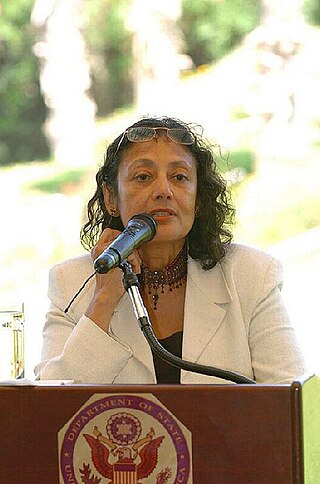
Bharati Mukherjee was an Indian American-Canadian writer and professor emerita in the department of English at the University of California, Berkeley. She was the author of a number of novels and short story collections, as well as works of nonfiction.

Jasmine is a novel by Bharati Mukherjee set in the 1980s about a young Indian woman in the United States who, trying to adapt to the American way of life in order to be able to survive, changes identities several times. Mukherjee's own experiences of dislocation and displacement in her life helps her in recording the immigrant experience of the protagonist in this novel.

Kenzaburō Ōe was a Japanese writer and a major figure in contemporary Japanese literature. His novels, short stories and essays, strongly influenced by French and American literature and literary theory, deal with political, social and philosophical issues, including nuclear weapons, nuclear power, social non-conformism, and existentialism. Ōe was awarded the 1994 Nobel Prize in Literature for creating "an imagined world, where life and myth condense to form a disconcerting picture of the human predicament today".

Under the Sign of Saturn is Susan Sontag's third collection of criticism, comprising seven essays. The collection was originally published in 1980. All of the essays were originally published, in a different or abridged form, in The New York Review of Books except for "Approaching Artaud," which was originally published in The New Yorker.
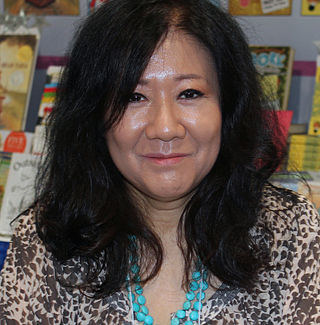
Cynthia Kadohata is a Japanese American children's writer best known for her young adult novel Kira-Kira which won the Newbery Medal in 2005. She won the National Book Award for Young People's Literature in 2013 for The Thing About Luck.

Michiko Kakutani is an American writer and retired literary critic, best known for reviewing books for The New York Times from 1983 to 2017. In that role, she won the Pulitzer Prize for Criticism in 1998.

Shizuo Kakutani was a Japanese and American mathematician, best known for his eponymous fixed-point theorem.
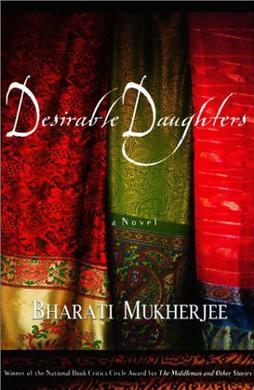
Desirable Daughters (2002) is the first in a trilogy of novels by Bharati Mukherjee which includes The Tree Bride (2004), followed by Miss New India (2011). The book was originally published by Hyperion / Theia.

Leave It to Me is a 1997 novel by Bharati Mukherjee. The story utilizes the myth of the Hindu Goddess, Durga, who is associated with protection, strength, motherhood, destruction, creation, and wars.

The Holder of the World, (1993) is a novel by Bharati Mukherjee. It is a retelling of Nathaniel Hawthorne's 1850 novel The Scarlet Letter, placing the story in two centuries. The novel involves time travel via virtual reality, locating itself in 20th century Boston, 17th century Colonial America, and 17th century India during the spread of the British East India Company. It also references Thomas Pynchon's novel, V.. The Holder of the World was among the contenders in a 2014 list by The Telegraph of the 10 all-time greatest Asian novels
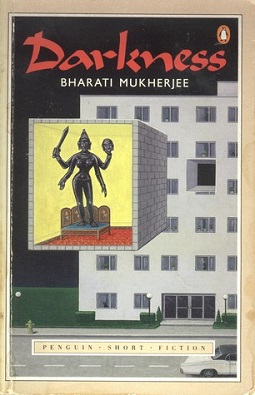
Darkness (1985) is a collection of short stories by Bharati Mukherjee.
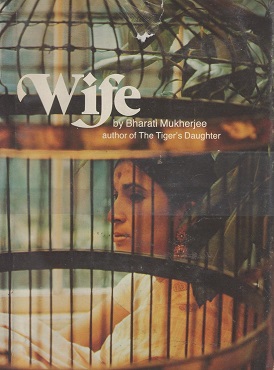
Wife (1975) is a novel by Bharati Mukherjee.The book was originally published by Houghton Mifflin.
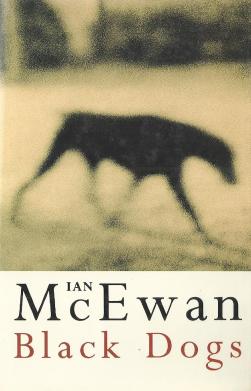
Black Dogs is a 1992 novel by the British author Ian McEwan. It concerns the aftermath of the Nazi era in Europe, and how the fall of the Berlin Wall in the late 1980s affected those who once saw Communism as a way forward for society. The main characters travel to France, where they encounter disturbing residues of Nazism still at large in the French countryside. Critical reception was polarized.

The Making of the Atomic Bomb is a history book written by the American journalist and historian Richard Rhodes, first published by Simon & Schuster in 1987. The book won multiple awards, including Pulitzer Prize for General Non-Fiction. The narrative covers people and events from early 20th century discoveries leading to the science of nuclear fission, through the Manhattan Project and the atomic bombings of Hiroshima and Nagasaki.

Monster: The Autobiography of an L.A. Gang Member is a memoir about gang life written in prison by Sanyika Shakur.
Nora Okja Keller is a Korean American author. Her 1997 breakthrough work of fiction, Comfort Woman, and her second book (2002), Fox Girl, focus on multigenerational trauma resulting from Korean women's experiences as sex slaves, euphemistically called comfort women, for Japanese and American troops during World War II and the ongoing Korean War.
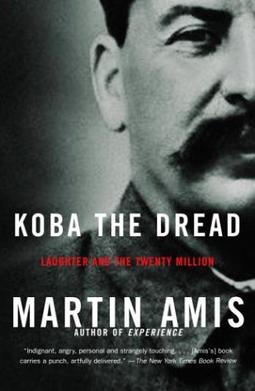
Koba the Dread: Laughter and the Twenty Million is a 2002 non-fiction book by British writer Martin Amis.
None to Accompany Me is a 1994 novel by South African Nobel Winner Nadine Gordimer. The novel follows the motifs and plot framework of a Bildungsroman, exploring the development of the main character, Vera Stark. The novel is set during the early 1990s in South Africa after the release of Nelson Mandela.
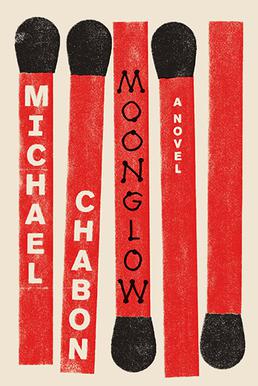
Moonglow is a 2016 novel by Michael Chabon. The book chronicles the life of Chabon's grandfather, a WW2 soldier, engineer and rocket enthusiast who marries a troubled Jewish survivor from France and lives a challenging, wandering life in postwar America. Chabon tells the story using a mixture of strict memoir and creative fiction writing. The narrator functions as a proxy for the author, Chabon.

Arctic Dreams: Imagination and Desire in a Northern Landscape is a 1986 nonfiction book by Barry Lopez. It won the National Book Award for Nonfiction, the Christopher Medal, a Pacific Northwest Booksellers Association Award, and an Oregon Book Award for literary nonfiction. It was a National Book Critics Circle Award finalist.


















